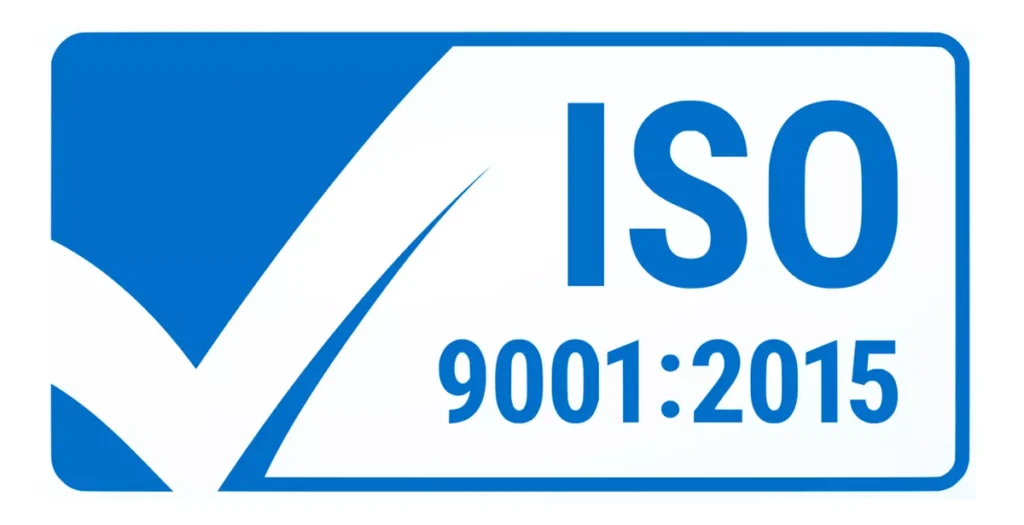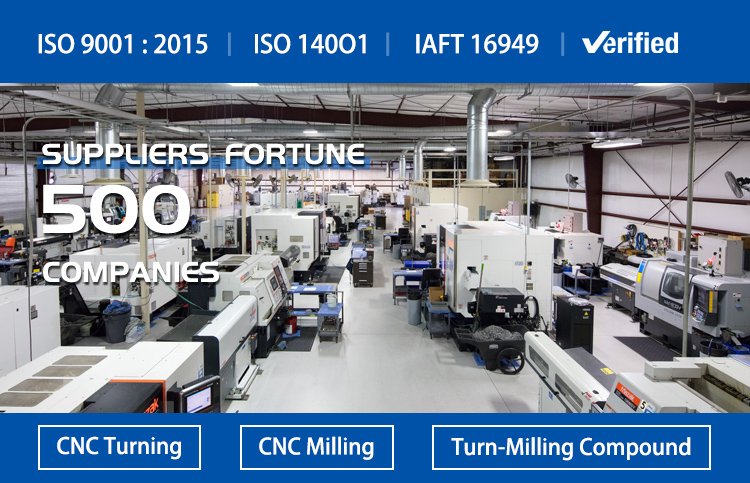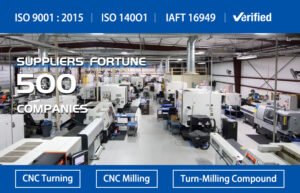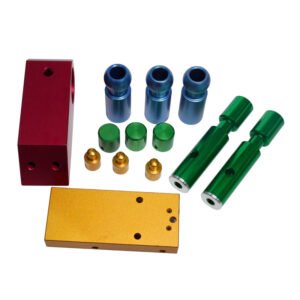1.Evaluate Technical Capabilities and Certifications
When selecting a manufacturer for CNC machining, consider their technical capabilities. A reliable manufacturer should have a modern, versatile machinery park capable of performing processes like milling, turning, and drilling. This ensures they can meet specific machining needs and handle various materials, including metals, plastics, and composites.
Certifications are also essential. ISO 9001 demonstrates a quality management system committed to meeting customer requirements and continuous improvement. Industry-specific certifications like AS9100 for aerospace or ISO 13485 for medical devices indicate that the manufacturer meets specific industry standards.
Evaluating a manufacturer’s technical capabilities and certifications is crucial to ensure they have the necessary equipment, expertise, and quality standards to meet your CNC machining needs.



2.Assess Communication and Service Quality
Additionally, evaluate the manufacturer’s service quality, considering factors like on-time delivery, product quality, and after-sales support. A manufacturer who consistently delivers high-quality products on schedule and offers excellent after-sales support is more likely to be a reliable partner. Check reviews or testimonials from other customers to gauge the manufacturer’s service quality.
3.Request Samples and Conduct Site Visits
Requesting samples of their work allows you to assess the quality and craftsmanship of their products firsthand, ensuring they meet your standards and expectations.
Additionally, conducting site visits to the manufacturing facility is beneficial. It lets you observe their operational processes, workforce expertise, efficiency, facility management, and employee skills.
During the site visit, you can ask questions about their manufacturing processes, quality control measures, and any other concerns. This helps you understand their operations and determine their suitability for your needs.
Overall, requesting samples and conducting site visits are vital steps in selecting a supplier. They enable you to evaluate the quality of their work, observe their processes, and assess if they are the right fit for your business.
4. Inquire About Quality Control Processes
Here are some questions to ask about the manufacturer’s quality control processes:
- How do you ensure the quality of materials used in production?
- What quality checks are performed during manufacturing?
- Are there specific quality control measures for critical production stages?
- How do you ensure the final product meets required quality standards?
- Do you have any certifications or accreditations related to quality control?
- How often do you conduct quality audits or inspections?
- What actions are taken if a product does not meet quality standards?
- Can you provide examples of resolving past quality issues?
- How do you handle customer complaints or feedback related to product quality?
- Can you provide references or testimonials regarding your quality control processes?
Asking these questions helps you understand the manufacturer’s commitment to quality control and their ability to consistently deliver high-quality products.
5.Analyze Logistics and Lead Times
When evaluating a company’s ability to meet delivery timelines and the efficiency of their logistics solutions, consider the following factors:
Lead Times: Understand the lead times for products or services, from order placement to delivery. Ensure the company can meet your required timelines by discussing lead times in detail.
Logistics Infrastructure: Assess their logistics infrastructure, including transportation, warehousing, and distribution capabilities. Determine if they have their own fleet or use third-party providers and if their warehouses are strategically located for timely deliveries.
Supply Chain Visibility: Inquire about their supply chain visibility tools and processes. A company with good visibility can track shipments in real-time, identify potential delays, and take corrective actions promptly.
Inventory Management: Efficient inventory management is crucial. Ensure the company has effective practices to maintain the right stock levels and prevent delays due to stockouts or excess inventory.
Contingency Plans: Ask about their contingency plans for potential supply chain disruptions. Look for alternative sourcing options, backup transportation providers, or redundant distribution centers that can mitigate delays.
Communication and Collaboration: Discuss their communication channels, responsiveness, and willingness to collaborate. Effective communication and collaboration help ensure your requirements are understood and concerns are addressed promptly.
Customer Feedback and References: Seek feedback and references from other customers. This provides insights into the company’s track record of meeting delivery timelines and the efficiency of their logistics solutions. Positive feedback indicates a higher likelihood of meeting your requirements.
By considering these factors, you can evaluate the company’s logistics and supply chain management practices to assess their ability to meet your delivery timelines. Additionally, have a clear agreement or contract in place specifying expected delivery timelines and any penalties for non-compliance.
6.Review Payment Terms and Guarantees
When reviewing payment terms, ensure they are fair and reasonable. Look for manufacturers offering flexible payment options, such as a mix of upfront deposits and final payments upon product completion or delivery. Avoid those requiring full payment upfront, as this can be risky and may indicate a lack of trustworthiness.
Transparency is crucial. The manufacturer should clearly outline the payment schedule, including due dates and penalties for late payments. Ensure you fully understand the terms and conditions before agreeing.
Inquire about guarantees as well. A reliable manufacturer should offer some form of product guarantee, whether a warranty against defects or a compliance guarantee with certain standards. Ask about the length and coverage of the guarantee and understand the process for handling defects or non-compliance. Determine if the manufacturer will replace or repair products and who bears the shipping costs.
Overall, reviewing payment terms and guarantees is a vital step in selecting a reliable manufacturer. Look for fair, transparent payment terms and guarantees that provide peace of mind and protect your investment.
7.Gather Feedback from Current or Past Clients
Here are some questions to ask when gathering feedback from current or past clients:
- How long have you been working with this manufacturer?
- How satisfied are you with their products?
- Have you encountered any issues with their products? If so, how were they resolved?
- How would you rate their customer service?
- How reliable are they in terms of delivering products on time?
- Have you experienced any communication issues with them?
- How would you rate the overall quality of their products?
- Would you recommend this manufacturer to others? Why or why not?
- Have you had any negative experiences with them? If so, please explain.
- Is there anything else you’d like to share about your experience with this manufacturer?
Remember to thank the client for their time and feedback, and assure them that their responses will remain confidential.







